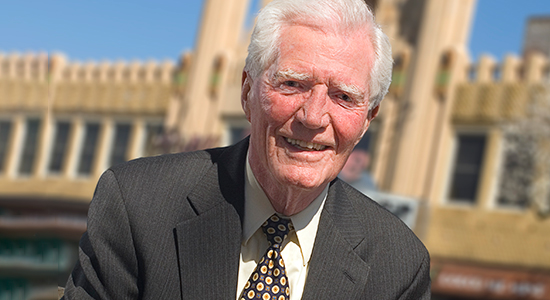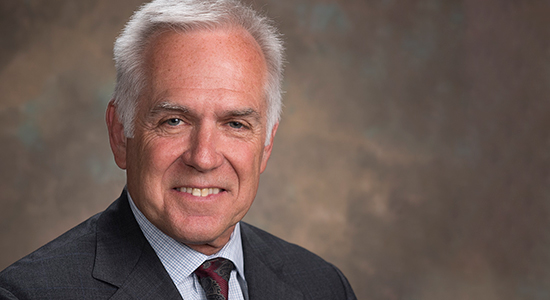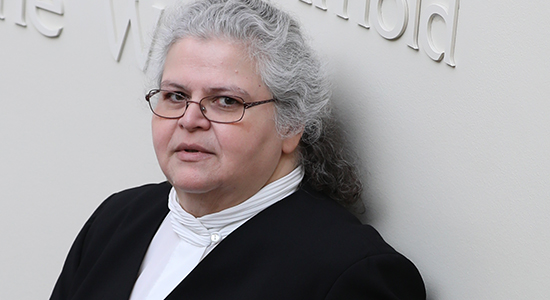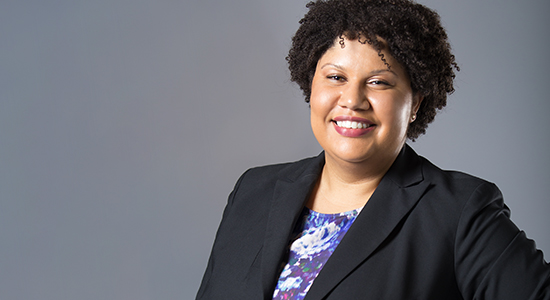
Each December brings the unveiling of “What’s Hot, What’s Not in the Legal Profession,” an annual report from Robert Denney Associates, a West Chester, Pa.-based management, leadership, strategic planning, and business development consultancy serving law firms nationwide.
In looking at trends and issues for the year ahead, the 29th annual report, for 2018, provides a broad-stroke picture of many changes, challenges, and opportunities facing the legal profession. To paint that picture, Denney draws from diverse sources: law firms, legal networks, legal departments, other surveys, the press, and other legal services providers.
The demand for legal services will be stagnant, Denney predicts, and alternative legal services providers will continue to grow in number and to expand their service offerings.
Tell Us!
What changes in your practice
area are you anticipating in the
coming year? Post a comment below or email us at
wislawmag@wisbar.org.
But Denney also sees a ray of hope for the legal profession’s future. He compares it to a transformation that occurred in the accounting profession years ago. To survive and thrive, accountants began to look for new ways to serve clients, beyond just keeping books and doing audits.
In that vein, Denney has seen some law firms move to an industry-group practice structure, in which lawyers in different practice areas within a firm join forces to serve a client’s needs.
“Some firms are broadening that to say, ‘We’ll do the legal work and also get some industry experts to work with us to form a team. We can help our clients so much more that way,’” Denney reports. “That’s a hopeful sign, but it’s still small.”
Other trends Denney cites indicate that some lawyers are seeking new approaches to how and where they practice. He notes the rise of virtual offices, working at home, contract and flex-time lawyers, and legal incubators in which recent law school graduates get the training and infrastructure they need to launch solo practices.
“You have a new generation of lawyers,” Denney says, “who like to work outside the usual office setting. Some firms are beginning to deal with this, and I’m glad to see it.”
The entire report appears in this issue on page 12. Below we highlight some key findings and share thoughts from several Wisconsin attorneys and other professionals on what they expect in 2018.

Robert Denney, Robert Denney Associates, West Chester, Pa.: The demand for legal services will be stagnant, and alternative legal services providers will continue to grow in number and service offerings. Some law firms will move to an industry-group practice structure, while others may gravitate to virtual offices and contract for legal work or hire flex-time lawyers.
Hot Practice Areas
Here are a few practice areas in which Denney expects much activity in the coming year.
Health Care Law
Again this year, health care law appears on Denney’s list of “red hot” practice areas. A major driving factor is consolidation activity within the health care industry, says Jerard Jensen, general counsel for the Marshfield Clinic Health System.
“Survival amid increasing competition is driving consolidation and collaboration,” he says. “As those trends continue, there’s going to be a lot of work for lawyers who represent health care organizations.”
That work entails executing merger and acquisition transactions and creating alliances and collaborative models. The push toward larger health care organizations will continue, in Jensen’s view.
As to why, “it’s not just about compliance with regulations,” he explains. “It’s about many things that need to be done to reduce or contain costs. That’s hard for a small organization to do. It’s much easier for a larger organization.”
Because health care is a heavily regulated industry, health care law enters in when these transactions occur, Jensen notes. “But there’s probably a greater element of legal work that has nothing to do specifically with health care law. It’s transaction and litigation work that accompanies the changes in the industry.”
As for health care law per se, the future of the Affordable Care Act (ACA) is uncertain. Jensen feels sure that the Republican-led Congress will amend or replace the ACA at some point. “When that happens,” he says, “it will cause ripples that will run through the industry. That will spawn another wave of work for lawyers.”

Jerard Jensen, Marshfield Clinic Health System, Marshfield: Survival amid increasing competition is driving consolidation and collaboration, creating a lot of work for lawyers who represent health care organizations. Expect the push toward larger health care organizations to continue.
Immigration Law
This ranks as another “red hot” area of law practice. Madison attorney Mary Castro of Castro & Gutierrez Law Office sums up the situation as one of “backlog, backlog, backlog.” President Donald Trump’s election sparked a rush of citizenship and naturalization applications. “It’s gone from 4-to-6-month processing to 9-11 months,” Castro says.
Employment authorization applications also have huge backlogs. A rule once existed requiring these matters to be adjudicated within 90 days. “That rule is gone,” Castro says. “People have to apply way ahead, and even that doesn’t guarantee you’ll not have a lapse in employment authorization.”
That’s stressful for people trying to hang on to their jobs, as well as for those who employ them. (For more on the latter, see under In-House Counsel in the Other Trends and Issues section later in this article.)
President Trump also acted on his promise to repeal President Obama’s executive directive that temporarily protected qualified young immigrants, often called “dreamers,” from deportation and enabled them to hold jobs. This order is known as Deferred Action for Childhood Arrivals, or DACA. [Editor’s Note: As of mid-January, the future status of DACA is uncertain as federal budget negotiations continue.]
“DACA is gone and they’re looking at ending the Nicaraguan TPS after six months,” Castro says. TPS is “temporary protected status,” which was put in place for Nicaraguan citizens after Hurricane Mitch a few years ago.
The result of such government actions is an enormous amount of desperation among immigrants and uncertainty about their legal status. “Some may have a remedy a couple of years down the road, but they don’t have one now,” Castro says. “There are problems in how you stay here in the meantime and make a living.”

Mary Castro, Castro & Gutierrez Law Office, Madison: Immigration law is red hot as President Donald Trump’s election sparked a rush of citizenship and naturalization applications and employment authorization applications, creating massive backlogs and lengthy processing times. Recent government actions have created an enormous amount of desperation among immigrants and uncertainty about their legal status.
Food and Beverage Law
With issues related to labeling and ingredient-listing regulations, food and beverage law will continue to be a “hot” area, according to Denney. Leah Hurtgen Ziemba of Michael Best in Madison agrees.
“What we’re seeing is that consumers want cleaner labels and shorter ingredient lists,” Ziemba says. “The legal issues have increased related to what those labels should include and whether the descriptions are scientifically based, adequate, and not misleading.” For instance, the “all natural” label and the GMO label have been the subject of lawsuits.
The currently existing patchwork of local, state, and federal regulations equates to “a lot of room for error,” Ziemba points out. “Which is why the legal needs are on the increase.” National uniform labeling standards have been delayed.
In addition, compliance dates for some of the key pieces of the Food Safety Modernization Act will arise in 2018. But Ziemba says it remains unclear whether the U.S. Food and Drug Administration has the necessary resources to enforce those requirements.
Likewise, menu-labeling requirements for restaurants, initially set to go into effect in May 2017, were pushed back to May 2018.
The situation has spurred many restaurants and food companies to take steps on their own to satisfy consumers. “A lot of what we do is counsel companies, of all sizes, on what the requirements are and also on being proactive,” Ziemba says. “They want to react to what consumers are demanding.”

Leah Hurtgen Ziemba, Michael Best, Madison: With issues related to labeling and ingredient-listing regulations, food and beverage law continues to be a hot practice area. Consumers want cleaner labels and shorter ingredient lists, but what should be on those lists? The existing patchwork of local, state, and federal regulations equates to a lot of room for error, which points to increasing legal needs.
Bitcoin
Another of Denney’s “hot” areas is bitcoin, a cryptocurrency and worldwide payment system. It’s the first decentralized digital currency, as the system works without a central bank or single administrator.
On Jan. 1, 2017, bitcoin was trading at $960.79 per coin, and by mid-December, it was selling at close to $20,000 per coin. That sparked renewed interest in bitcoin, which first emerged in 2009 and has seen many up and down cycles since then.
So what does all this have to do with lawyers? Some have begun to represent clients in the cryptocurrency industry. Nearly 90 lawyers belong to the Digital Currency and Ledger Defense Coalition, which describes its mission as “protecting your constitutional right to innovate with blockchain technology.” Blockchain is the technology that manages bitcoin, but also has other commercial uses.
But why does bitcoin matter to other lawyers? “There’s a chance lawyers will have clients who want to pay their bills in bitcoin,” says Patrick Bergin of von Briesen & Roper s.c., Milwaukee. “It depends on how widespread the adoption of bitcoin becomes.”
Also, bitcoin is an asset, like any currency. It could be included in assets that must be divided in a divorce or distributed in an estate plan.
“There are dozens of digital currencies,” says William Caraher, chief information officer and director of operations at von Briesen & Roper s.c. “Bitcoin is the one getting the most press because it’s having the most success right now. So this is just the start of the wild, wild West of cryptocurrency. Starting to tune into it and understand it is the best first step.”
Adds Bergin, “You don’t want to be the attorney who has a client who’s talking about paying in bitcoin or transferring assets in bitcoin, and you don’t know what that is.”

Patrick Bergin and William Caraher, von Briesen & Roper s.c., Milwaukee: As interest in bitcoin and other digital currencies and worldwide payment systems increases, some lawyers will represent clients in the cryptocurrency industry, while others may have clients who want to pay their bills in bitcoin. Now is the time for lawyers to tune into and understand cryptocurrency.
Elder Law
“Boomers are starting to come in the door as they near retirement age,” says Shanna Yonke of Ruder Ware L.L.S.C. in Wausau. That translates into plenty of work for elder law attorneys.
“We’re on the cusp of what people are calling ‘the great wealth transfer,’” Yonke explains. “We’re anticipating the transfer of about $30 trillion from boomers to the next generation over the next few decades.”
Key issues that arise include protecting heirs from creditors, as well as protecting heirs from themselves. “We’re starting to include substance abuse provisions in our trusts,” Yonke says, “primarily because of the opioid crisis.” The trustee can include provisions in the trust that call for drug testing and paying for the beneficiary’s treatment.
The tax reform act also is a hot topic in estate planning, Yonke adds, as exemptions from the federal estate tax climb from a base of $5 million per person per year to $10 million for tax years 2018 to 2025. Still, “only 0.2 percent of Americans ever pay estate tax,” she says, “so that’s not a big consideration in preparing most estate plans for our clients.”
Another elder law issue that sees activity is establishing guardianships. Usually this is triggered by an incident that causes family members or health professionals to question an elderly person’s ability to make his or her own decisions, and that person lacks a durable power of attorney or power of attorney for health care.
But such situations are “totally avoidable,” Yonke says, “if people have done their planning. It takes a few hundred dollars to create a power of attorney versus thousands and thousands for a guardianship proceeding.”

Shanna Yonke, Ruder Ware L.L.S.C., Wausau: As boomers near retirement age, elder law attorneys are seeing plenty of work in transferring wealth to the next generation, including protecting heirs from creditors and from themselves. Tax reform impacts on estate planning, trust formation, and guardianships are among the types of work elder law attorneys can anticipate.
E-sports
People have been playing video games, or e-gaming, while sitting on their couches for decades. E-sports, or the competitive playing of video games, take that to another level. Denney cites e-sports as a law practice area that’s “getting hot.”
“E-sports have become a billion dollar industry,” says Nathaniel Blair, general counsel for Hi-Rez Studios in Atlanta. Tournament players sometimes compete online, with spectators also watching online. Other times, players and spectators gather at a physical venue.
“Large competitions have sold out such places as Madison Square Garden and the STAPLES Center,” Blair reports. Even television networks now air professional e-sport tournaments. Competitions also occur at the collegiate and high school levels.
Speaking as an e-sports attorney, “what’s great for us right now,” Blair says, “is that there’s a lot of theory out there about what e-sports are going to look like as a business model. We’re sorting out a new area and setting new rules of the road.”
Blair’s legal work involves negotiating team agreements, player agreements, media deals, licensing agreements, sponsorship and naming rights, and more. He also handles the sorts of matters common to any technology-based company.
He was recruited into this line of practice by Brian Grayson, Hi-Rez’s vice president and general manager. The two formerly practiced law together at Foley & Lardner LLP in Milwaukee.
“We’re in an industry that is changing and growing rapidly,” Blair says. “That provides lots of fun, exciting work for the attorneys, as it does for anybody else in the company.”

Nathaniel Blair, Hi-Rez Studios, Atlanta, Ga.: E-sports have become a billion-dollar industry as tournament players sometimes compete online, with online spectators, or gather at a physical venue. Legal work can involve negotiating team agreements, player agreements, media deals, licensing agreements, sponsorship and naming rights, and more. E-sports is an industry that is changing and growing rapidly.
Labor and Employment Law
Denney’s report predicts activity in this area will be “cool” in 2018, except for immigration issues. But recent events will change that, says Christine Liu McLaughlin of Godfrey & Kahn S.C. in Milwaukee.
“I think the runaway train of the #MeToo movement will soon be moving into workplaces,” she says. “We are going to see and already have seen an uptick in not only sexual harassment complaints coming in, but also employers wanting guidance on how to address those complaints, some of which are years old.”
Employers will need to be reminded to scrutinize their policies and make sure “their open-door policy is really open,” she adds. Lawyers will need to help employers to navigate this sensitive terrain in a thoughtful and intentional manner.
“There are legalities that need to be considered before a rush to judgment,” Liu McLaughlin says. “It can be a very slippery slope for employers in Wisconsin.”
For other employment law issues, see Gender Bias Lawsuits and Contract and Flex-time Lawyers under the Other Trends and Issues heading below.

Christine Liu McLaughlin, Godfrey & Kahn S.C., Milwaukee: Recent events such as the #MeToo movement are creating an uptick in sexual harassment complaints and requests from employers on how to address them. Lawyers will need to help employers to navigate this sensitive terrain in a thoughtful and intentional manner, beginning with thoroughly scrutinizing their policies.
Tax Law
When Denney’s report emerged in early December 2017, he listed tax law as a practice area with “no reading yet.” A few weeks later, the House and Senate passed the tax reform bill (the Tax Cut and Jobs Act of 2017), answering some of the questions that loomed when Denney’s report appeared.
A key part of the law entails lowering the maximum tax rate for C corporations from 35 percent to 21 percent. For owners, partners, and shareholders of S corporations, LLCs, and partnerships, the tax burden will decrease by a 20 percent deduction – subject to complicated limitations and special rules for service businesses.
The upshot is that some companies may opt to switch from one type of business structure to another, explains Ron Skrenes of Anderson, O’Brien, Bertz, Skrenes & Golla LLP in Stevens Point.
“The law will create a huge amount of work for attorneys and CPAs,” Skrenes says, “as they try to interpret the law and then inform their clients and implement new strategies.”
Another business law area with heightened activity is succession planning. “Baby boomers are retiring,” Skrenes says, “and often they are transferring their businesses to family members or employees. The pace of that is increasing.”

Ron Skrenes, Anderson, O’Brien, Bertz, Skrenes & Golla LLP, Stevens Point: With recent changes to tax law, some companies may opt to switch from one type of business structure to another, creating a huge amount of work for attorneys and CPAs. The pace of succession planning is another business law area with heightened activity.
Marketing and Business Development Trends
Artificial Intelligence
Law firms are beginning to use artificial intelligence tools to more effectively serve their clients and market their services, Denney reports. Those two purposes go hand in hand, points out Jill Weber, chief marketing and business development officer at Stinson Leonard Street LLP in Minneapolis.
Indeed, the Legal Marketing Association identifies artificial intelligence as “the next big thing,” Weber says. “We’re looking at the impact artificial intelligence will have on both the legal profession and the legal marketing profession.”
Akerman LLP, with 24 offices nationwide, is one firm that’s developed an artificial intelligence tool – a Data Law Center through which companies can gain access to information about compliance with data laws in all 50 states.
Another example is Foley & Lardner LLP, Milwaukee, where David Simon and John Turlais devised Global Risk Solutions, an artificial intelligence tool that helps companies comply with the Foreign Corrupt Practices Act. Simon and Turlais won a Wisconsin Legal Innovators Award from the State Bar of Wisconsin in 2015 for that achievement.
Likewise, William Caraher won the same award in 2016 for implementing Ross Intelligence at von Briesen & Roper s.c. Ross is a research platform that allows users to pose natural-language questions. The user gives feedback in the back-and-forth communication to better target the most relevant search results. Over the past year, “Ross has added more content in more areas of law,” Caraher says. “It’s also getting better at understanding queries to provide results that are more on point. So the system continues to evolve and add value.”
The above examples illustrate the two-fold benefit artificial intelligence brings to law firms. “They’re creating tools that benefit clients,” Weber says, “and also help the firms to distinguish themselves in the marketplace.”

Jill Weber, Stinson Leonard Street LLP, Minneapolis: Law firms are beginning to use artificial intelligence tools to more effectively serve their clients and market their services. The Legal Marketing Association identifies AI as the “next big thing” that will impact both the legal profession and legal marketing profession.
Other Trends and Issues
Nontraditional Work Arrangements
The legal profession has begun to see a shift away from traditional law office settings to other arrangements, such as virtual offices, working from home, and contract and flex-time lawyers, according to Denney’s report. Driving these trends are young lawyers’ preferences and firms’ efforts to cut costs.
Hiring attorneys on a contract or flex-time basis raises questions related to employment law, says Godfrey & Kahn’s Christine Liu McLaughlin. “It’s a hotbed of discussion in our industry,” she says, “especially from an employment perspective.”
For instance, in the case of a contract attorney, is the individual truly a contractor or an employee? How do you handle overtime? What about the duty to supervise from an ethics standpoint? Are there conflicts of interest? How do you ensure confidentiality?
Liu McLaughlin points out that some contract lawyers have filed lawsuits against the firms that hired them. “Firms need to have safeguards in place,” she says. “There are lots of issues to consider.”

Danielle White, Rockwell Automation, Milwaukee: In-house legal departments continue to do more with less. Areas of big concern for corporate counsel include cybersecurity, immigration, shareholder activism, and crisis management. Companies need to respond to crises in a swift, correct way.
In-House Counsel
“Do more with less” continues to be a mantra for in-house legal departments, as Denney points out in his report. Agreeing with that assessment is Danielle White, legal counsel at Rockwell Automation in Milwaukee.
She also notes that two of the “red hot” practice areas listed in the Denney report are big concerns for corporate counsel, as well. One is cybersecurity, a worry for any business enterprise today. The other is immigration.
Dianne Molvig is a frequent contributor to area and national publications.
Her company, for instance, is multinational, employing people around the world who sometimes need to move about. “We need to provide support to customers in a particular region, some within the U.S.,” she says. “If I can’t get my person here, we have a problem.”
Immigration and visa applications are facing enhanced scrutiny under the current administration. “You don’t know what’s going to get rejected now,” White explains, “and the process is taking longer.”
Another growing challenge for publicly held companies is shareholder activism. Shareholders may push for the company to become more profitable. But it’s not just about the bottom line; activists also are calling on companies to revise policies.
Thus, a company’s investor relations team needs “to be mindful of the company’s practices,” White explains, “and of what’s in its organizational documents that could make it a target.”
In addition, in-house counsel must pay increasing attention to crisis management. White points to incidents such as the death of a toddler dragged by an alligator into a lagoon near a Walt Disney World resort in Florida and the controversy that erupted after a passenger was forcibly removed from an overbooked United Airlines flight at O’Hare International Airport.
In such episodes, companies “need to be able to respond in a swift, correct way,” White says. “A lot of in-house counsel are starting to refresh or put into play their crisis management plans.”
Gender Bias Lawsuits
As the Denney report notes, gender bias lawsuits continue, according to the findings of the 2017 Law360 Glass Ceiling Report, published by the legal publication Law360. While 50 percent of law school graduates are women, only 35 percent of law firm lawyers are women, and women hold only 20 percent of equity partnerships.
“The report shows that these lawsuits are not just about pay disparity, but about loss of opportunities,” says Liu McLaughlin, former chair of Godfrey & Kahn’s Women’s Leadership Forum and current chair of the firm’s Diversity Committee. She also serves on the National Women Leaders Council of the United Way.
This trend will push law firms to look within, she adds, to uncover unconscious bias that lies at the root of these disparities. “Part of understanding how we can do better,” she says, “is first acknowledging that we can do better, and should, in this day and age.”
Conclusion
Robert Denney’s report and the Wisconsin lawyers interviewed for this article make clear: activities on the national political scene can have significant effects on Americans’ day-to-day lives and on lawyers’ practices. Health care, taxation, and immigration will continue to evolve under the Trump administration.
But so too will areas less tied to politics and governance, as attested to by the opportunities for lawyers pertaining to elder law, bitcoin transactions, and artificial intelligence. Lawyers who are ready to respond quickly to social and technological developments and to find new ways to serve clients can thrive in this dynamic environment.
